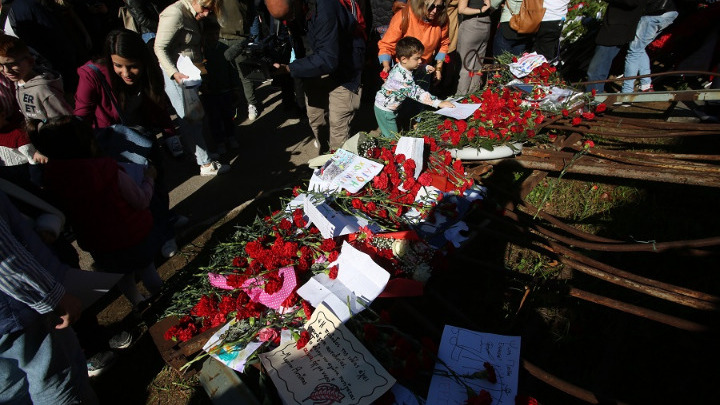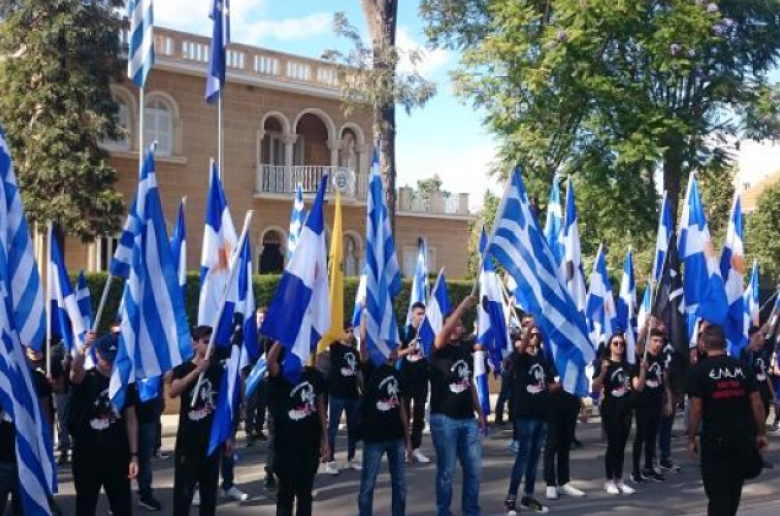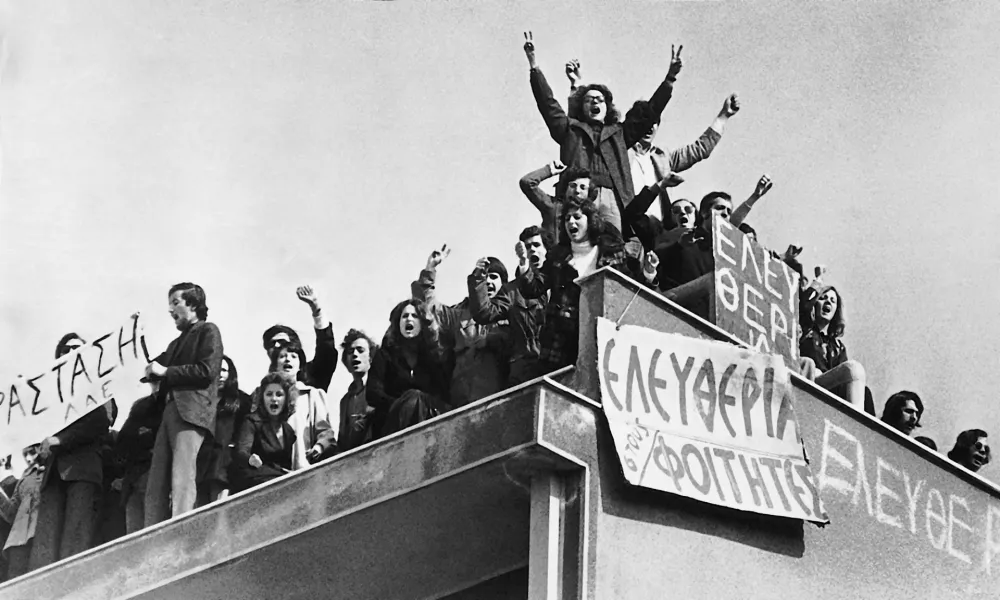The chant then was almost embarrassingly practical. “Bread, Education, Freedom.” People demanded fundamentals. Students and workers refused to be airbrushed into silent props and forced a reckoning that the junta could not domesticate. The tanks, the deaths, and the brutal morning after did not, by themselves, restore democracy. They did something more dangerous for the regime, they made its legitimacy faint. That is the hinge we keep forgetting. Authoritarianism rarely arrives wearing jackboots on Day One. It creeps in behind “temporary measures,” then asks you to admire its punctual trains. The Polytechnic revolt on 17 November 1973 punctured that fairy tale, and the lesson is timeless.
Across Europe, a thrum of impatient populism and rinse-and-repeat neo-fascist aesthetics has found an edge with the young, especially young men, through grievance, memetics, and an easy-to-share contempt for “politics.” According to a Taylor & Francis report, in the 2024 European elections younger voters were more likely to back far-right lists in several member states, while support for liberal-democratic norms among Gen Z is softening.

Cyprus is not a bystander to this drift. In June 2024, the far-right ELAM won a seat in the European Parliament with just over 11 percent of the vote. Pair that with the parallel shock of a 24-year-old influencer capturing nearly one in five votes and you see an electorate, especially its younger slice, experimenting outside the party system. Three themes emerged hence; distrust of parties, a hunger for “authenticity,” and politics refracted through platforms where outrage-to-reward loops are engineered, not accidental.
Survey work by ONEK (Youth Board of Cyprus) with Cypriot youth shows trust in institutions scraping the bottom, political parties rated just 3.26 out of 10, while jobs, housing costs, and a general anxiety about the country’s direction dominate their mental real estate. When your informational diet is primarily social media and your baseline assumption is that “the system” is rigged, candidates who mock the script will eat the algorithm alive. That attention economy is not ideologically picky, it rewards spectacle, and the far right knows spectacle.

There is also a harsher truth. Populism is beaten by competence that delivers. You do not sermonise people out of anger. The EU-wide data showing a segment of Gen Z open to authoritarian shortcuts should terrify anyone who thinks history always arcs in our favour. It doesn’t. It arcs where people push. And right now, a lot of pushing is happening on TikTok and in private channels where fact-checking goes to die and identity performance does the talking.
The point is to remember that democracy is a system that bleeds when neglected. On 17 November, Greeks commemorate an uprising that cracked a junta’s narrative. In 2025 Cyprus, the assignment is to crack a different narrative. The one that screams of politics being a spectator sport, that nothing changes, that “strong hands” will fix what messy democracy cannot.
Students on that fateful day in 1973 made obedience look ridiculous, and that is half the battle. If Cypriot politics wants to inoculate its young against the slick grammar of neo-fascism and the empty calories of influencer populism, it has to make democracy feel like a working machine they can touch, not a museum they must respect. The centre “holding” means nothing if it doesn’t hold space for the impatient. That is the job. The rest is anniversaries.
